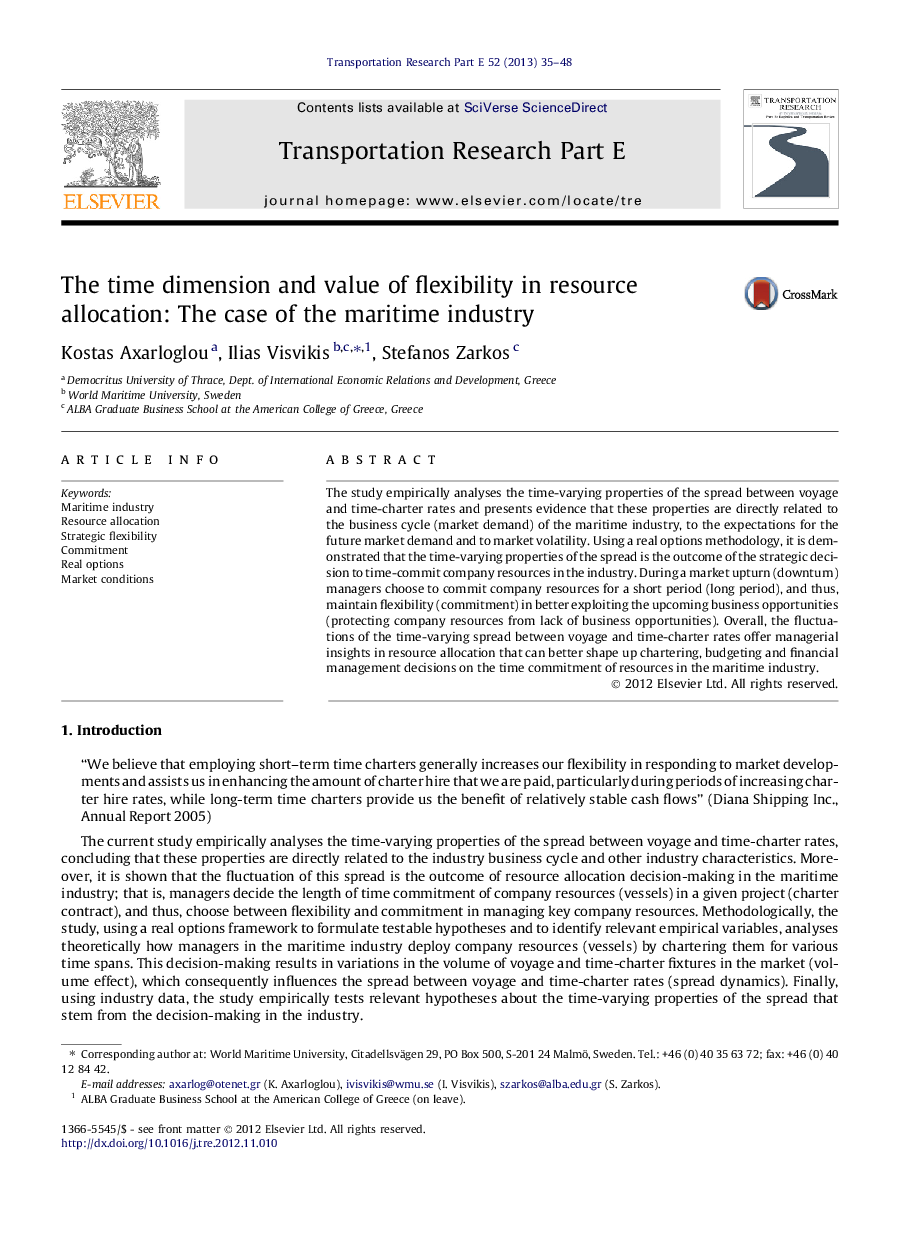| Article ID | Journal | Published Year | Pages | File Type |
|---|---|---|---|---|
| 1023480 | Transportation Research Part E: Logistics and Transportation Review | 2013 | 14 Pages |
The study empirically analyses the time-varying properties of the spread between voyage and time-charter rates and presents evidence that these properties are directly related to the business cycle (market demand) of the maritime industry, to the expectations for the future market demand and to market volatility. Using a real options methodology, it is demonstrated that the time-varying properties of the spread is the outcome of the strategic decision to time-commit company resources in the industry. During a market upturn (downturn) managers choose to commit company resources for a short period (long period), and thus, maintain flexibility (commitment) in better exploiting the upcoming business opportunities (protecting company resources from lack of business opportunities). Overall, the fluctuations of the time-varying spread between voyage and time-charter rates offer managerial insights in resource allocation that can better shape up chartering, budgeting and financial management decisions on the time commitment of resources in the maritime industry.
► Examine strategic managerial decisions committing shipping resources through time. ► Real options demonstrate how shipping managers structure resource investments under uncertainty. ► Managers evaluating flexibility and commitment consider business cycles and growth prospects. ► In market upturns owners prefer voyage charters, maintaining resource flexibility. ► The above decreases the spread between short-term and long-term vessel charters.
